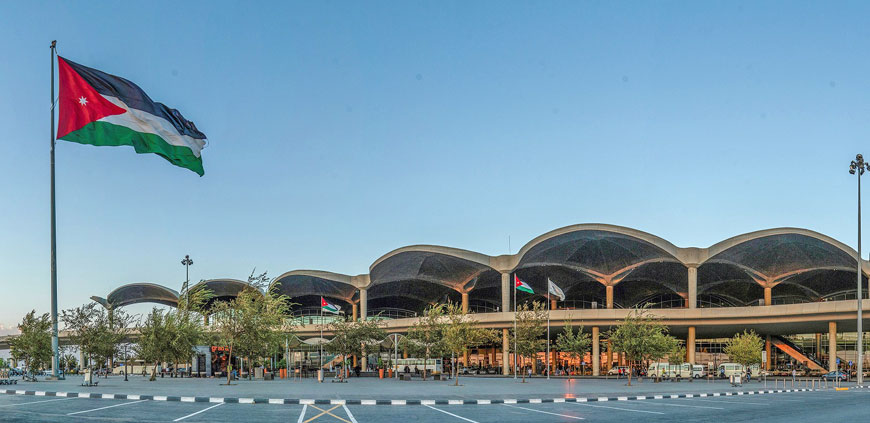AMMAN — A total of 6,063 flights passed through Queen Alia International Airport (QAIA) in January, marking a 6.9 per cent increase in aircraft movement, compared with the same month of 2018, the Airport International Group (AIG) said on Wednesday.
According to AIG statistics cited by the Jordan News Agency, Petra, the airport received 654,543 passengers in January, marking 4.9 per cent increase compared with the first month of 2018. However, freight movement decreased by 7,026 tonnes, or 13 per cent, compared with the same period in 2018.
AIG CEO Kjeld Binger attributed the positive 2019 results to the expansion of the airport’s airline network and aviation companies using QAIA.
According to recent AIG figures, QAIA in 2018 welcomed 8,425,026 passengers, a 6.5 per cent increase over 2017.
A total of 76,889 flights also passed through QAIA in 2018, registering a 3.8 per cent increase in aircraft movement.
However, cargo traffic also experienced a 5.7 per cent decline in 2018, according to the figures.
In total, cargo traffic settled at 104,170 tonnes in 2018, AIG said.
The figures for 2018 showed steady growth, particularly during the summer months and the holiday seasons.
QAIA’s monthly passenger record was broken in August, when for first time it exceeded 1 million passengers in one month.
